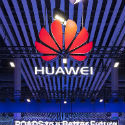Why is no one mentioning Beijing's $75 billion of assistance to Huawei?

Nobody, it seems, wants to talk about the huge subsidies the Chinese state has poured into Huawei's business.
The major Chinese vendor has been the beneficiary of as much as US$75 billion in government loans, credit lines, land grants and tax breaks, according to a Wall Street Journal report.
By comparison, Cisco received $44.5 million in state benefits in the past 20 years.
The Journal says it gleaned the numbers from public filings. It reports:
The largest portion of assistance -- about $46 billion -- comes from loans, credit lines and other support from state lenders, the Journal's review showed. The company saved as much as $25 billion in taxes between 2008 and 2018 due to state incentives to promote the tech sector.
Some years ago I asked Eric Xu, then Huawei CMO, about the $30 billion in credit lines made available by state banks. He waved it off by saying it was something the banks were doing over which Huawei had no control.
True enough -- no business would spurn a shower of cash, even from the government.
However, Huawei's $25 billion China Development Bank credit line wasn't a happy accident, but arose out of a deal between Huawei's founder Ren Zhengfei and then-CDB chairman, Chen Yuan, in 2004. (See Huawei Wins $10B Credit Deal.)
Frank Hochburg, former chairman of the US Ex-Im Bank, observed of Huawei's India growth spurt, where sales had spiked from $50 million to $2.5 billion in a year: "That kind of growth takes more than just good sales and marketing." (See Reliance Borrows $750M for Huawei Gear.)
Of course, state support for big tech is not unique to China, to which anyone who witnessed Amazon's orchestration of HQ bids can attest.
But on these numbers Huawei is playing a whole different game. The company has tried to explain away the assistance as "small" and available to foreign companies as well.
It's wrong on both counts. The credit lines from a state bank enable Huawei to consistently offer financing at below market rates: That's a saving of millions in a major network equipment deal.
Foreign vendors in China might qualify for some R&D tax breaks, but they certainly don't have the China Development Bank at their back when they try to sell in other countries.
The irony here is that Huawei is bearing the brunt of a US campaign to exclude it from 5G because of its alleged complicity in Chinese government cybersecurity activity. There is nothing to show that China's industrial-scale cyber attacks have anything to do with Huawei, yet there is evidence that the Chinese government assistance to Huawei is grossly distorting the 5G equipment market that is deemed to be of vital national security importance -- and somehow this doesn't seem to matter.
The trade war with China, supposedly fought to eliminate China's unfair trade practices, will reportedly bring an extra $25-or-so billion in US sales of beef and soybean. Quite the victory.
Yet the subsidies and grants to Huawei and other tech exporters by the Chinese authorities did not seem to even make it onto the trade war agenda.
So why is no one talking about this?
The timing might be a factor. Not a lot of people would have interrupted their Christmas morning to catch the latest Huawei news in the Journal.
Or maybe because the US has corporate welfare issues of its own it doesn't want to get into.
Or because the campaign against Huawei is being run by military and security agencies, rather than Treasury and Commerce.
It's a mystery. But if Washington wants to revive its flagging campaign against Huawei, it could do a lot worse than zero in on its improper state subsidies.
— Robert Clark, contributing editor, special to Light Reading
Read more about:
AsiaAbout the Author(s)
You May Also Like











